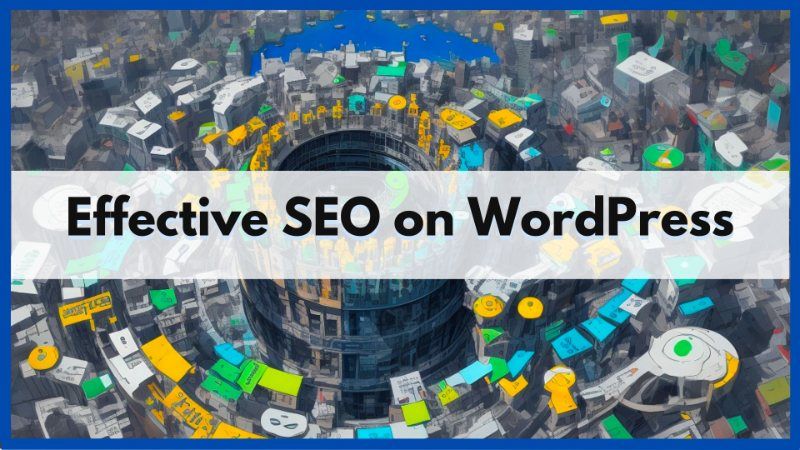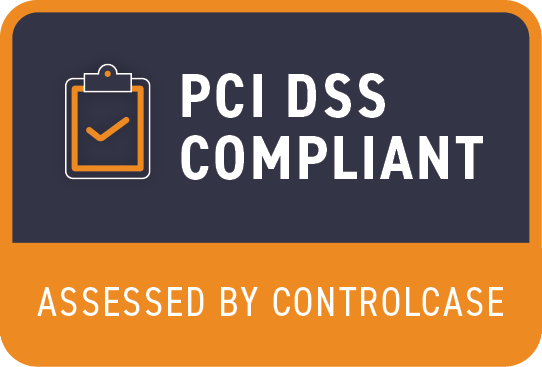In the digital landscape, the art of crafting a compelling online presence extends beyond captivating content and an aesthetically pleasing design. Introducing your WordPress site to the world is just the first step; ensuring it's discoverable is equally paramount. This brings us to the realm of Search Engine Optimization (SEO), a fundamental practice that catapults your website to the forefront of search engine results.
In the upcoming journey through WordPress SEO, we'll delve into the intricacies of enhancing your site's visibility, increasing organic traffic, and improving its overall performance.
By strategically optimizing your content, structure, and various elements, you not only enhance your site's accessibility but also pave the way for a more rewarding user experience. So, let's embark on this enlightening exploration, uncovering the keys to elevate your WordPress site's standing in the digital sphere and unlock the full potential of your online presence.
New to the WordPress ecosystem? Would highly recommend that you familiarize yourself with the foundational principles outlined in our previous blog post, "Everything you need to know about setting up your WordPress site". This introductory guide serves as the compass for navigating the diverse landscape of this powerful content management system. Understanding the basics of WordPress, its user-friendly interface, and essential features will provide you with a solid groundwork, ensuring a smoother transition into the intricacies of SEO. The link to the introductory blog post can be found here. Whether you're a seasoned WordPress enthusiast or just getting started, grasping the fundamentals is the key to unlocking the full potential of your digital space. So, let's lay the groundwork together, ensuring that every step in your WordPress journey, from introduction to optimization, is not just informative but also seamlessly integrated into your online presence.
Understanding the basics of SEO

Unlocking the potential of your WordPress site begins with a fundamental grasp of SEO basics, an essential key to enhancing its online visibility. SEO, or Search Engine Optimization, is the strategic practice of optimizing various elements on your website to rank higher in search engine results. As the digital landscape becomes increasingly competitive, understanding these basics becomes imperative for driving organic traffic, expanding your audience, and ensuring your content reaches those who seek it. By aligning your WordPress site with SEO principles, you not only make it more accessible to search engines but also enhance the overall user experience. From optimizing keywords to fine-tuning meta tags and creating compelling content, the journey through SEO basics is a pivotal step in establishing a robust online presence for your WordPress site. So, let's embark on this enlightening exploration, demystifying the essentials of SEO for the vibrant world of WordPress.
Choosing the right them
The impact of your WordPress theme on SEO cannot be overstated, as it lays the structural foundation for your entire digital presence. The theme you choose plays a crucial role in determining how search engines perceive and index your site. An SEO-friendly WordPress theme not only contributes to a visually appealing and user-friendly experience but also influences factors like site speed, mobile responsiveness, and overall performance—all of which are integral to SEO rankings. When selecting a theme, prioritize responsiveness across various devices, as mobile-friendliness is a key ranking factor. Opt for themes that adhere to clean and efficient coding practices, enhancing site speed and user experience. Consider themes that offer customization options, allowing you to optimize meta tags, headings, and other SEO elements. By choosing a theme that harmonizes aesthetics with functionality, you set the stage for a WordPress site that not only looks good but is inherently optimized for search engines.

Optimizing Permalinks and URL Structure
Crafting an effective SEO strategy for your WordPress site extends to the very fabric of its URLs and permalinks. User-friendly URLs not only enhance the navigational experience for visitors but also play a pivotal role in search engine optimization. When search engines decipher the content of a page, a clear and descriptive URL provides valuable context, contributing to higher visibility in search results. In WordPress, the default permalink structure may not always be the most SEO-friendly. Fortunately, customization options abound. Optimize your permalinks by incorporating relevant keywords, keeping them concise, and avoiding generic strings of numbers or symbols. Strive for a structure that mirrors the hierarchy of your site's content, making it not only more accessible to search engines but also more intuitive for your audience. As you embark on the journey of optimizing permalinks, remember that these seemingly small tweaks can wield significant influence on your site's SEO performance, ensuring that each URL becomes a strategic asset in the digital landscape.
Creating High-Quality and Relevant Content
In the dynamic landscape of WordPress SEO, the heartbeat of success resonates through the creation of high-quality and relevant content. Content, in essence, serves as the linchpin of search engine optimization, shaping the narrative of your digital presence. Search engines prioritize content that is informative, valuable, and aligns with user intent. To optimize your content for SEO, focus on crafting pieces that address your audience's needs and interests. Conduct thorough keyword research to seamlessly integrate relevant terms and phrases naturally. Maintain a consistent posting schedule to keep your site active and engaging. Incorporate multimedia elements such as images and videos to enhance the user experience. Encourage user interaction through comments and social sharing. By prioritizing substance over superficiality, you not only cater to search engine algorithms but also cultivate a loyal audience, solidifying your position in the vast online realm. Remember, in the realm of WordPress SEO, compelling content is the key that unlocks the doors to higher rankings and sustained online success.
Effective Use of Heading Tags and Keywords
Navigating the intricacies of WordPress SEO involves a nuanced understanding of heading tags and strategic keyword placement, elements that wield considerable influence over your site's visibility in search results. Heading tags, such as H1, H2, and so forth, structure your content hierarchically, providing both search engines and users with a roadmap of your page's organization. Utilize H1 tags for main headings and subsequent tags (H2, H3, etc.) for subheadings, creating a logical flow that enhances readability. As for keywords, their strategic placement within your content significantly impacts search engine ranking. Integrate relevant keywords naturally in titles, headings, and throughout the body of your text, but be cautious not to over-optimize, as this can lead to penalties from search engines. Striking a balance between informative headings and judicious keyword usage ensures that your content not only captivates readers but also aligns harmoniously with the algorithms that determine search engine rankings, propelling your WordPress site to greater visibility.
Utilizing SEO Plugins
In the realm of WordPress SEO, leveraging the power of dedicated plugins can be a game-changer, streamlining the process and maximizing your site's potential. Two popular choices in the vast landscape of WordPress SEO plugins are Yoast SEO and All in One SEO Pack. These plugins offer comprehensive tools to enhance your site's visibility and improve its search engine ranking. Installing and configuring a plugin is a seamless process that begins with accessing your WordPress dashboard. As you delve into the wealth of features these plugins offer, you'll find yourself equipped with a robust toolkit for optimizing your content, improving your site's structure, and ultimately propelling your WordPress site to the forefront of search engine results. Read more on WordPress plugins in this previous blog.
In concluding our exploration of WordPress SEO, let's shine a spotlight on two more crucial facets: the significance of backlinks and the tools essential for monitoring and refining your strategy. Backlinks, the digital endorsements from other websites, remain a potent force in SEO. Cultivate high-quality backlinks by engaging in guest posting, fostering relationships with influencers, and creating shareable, valuable content. Additionally, tools like Google Analytics and Google Search Console are indispensable companions on your SEO journey. They unveil valuable insights into your website's performance, user behavior, and search visibility. Regularly track key metrics such as organic traffic, click-through rates, and keyword rankings to measure the effectiveness of your SEO efforts.

Remember, the landscape of SEO is ever-evolving, and staying informed about industry updates and algorithm changes is paramount. As you bid adieu to this guide, consider it not as a conclusion but as a launchpad. SEO is a dynamic process, and the journey towards optimal visibility and user engagement is ongoing. Continue refining your strategies, adapting to emerging trends, and watch your WordPress site thrive in the ever-expanding digital realm.








